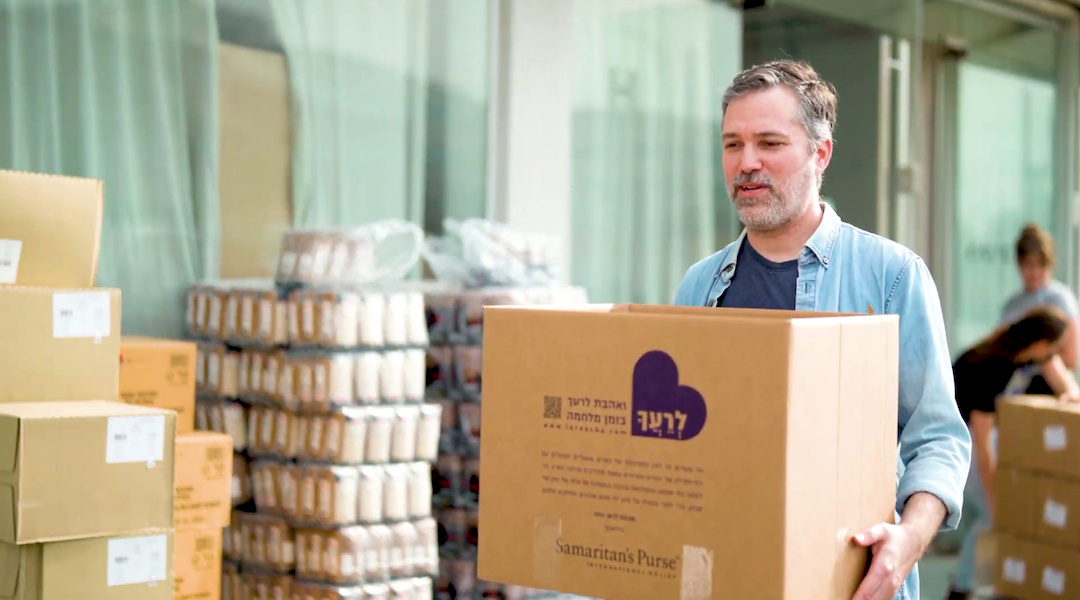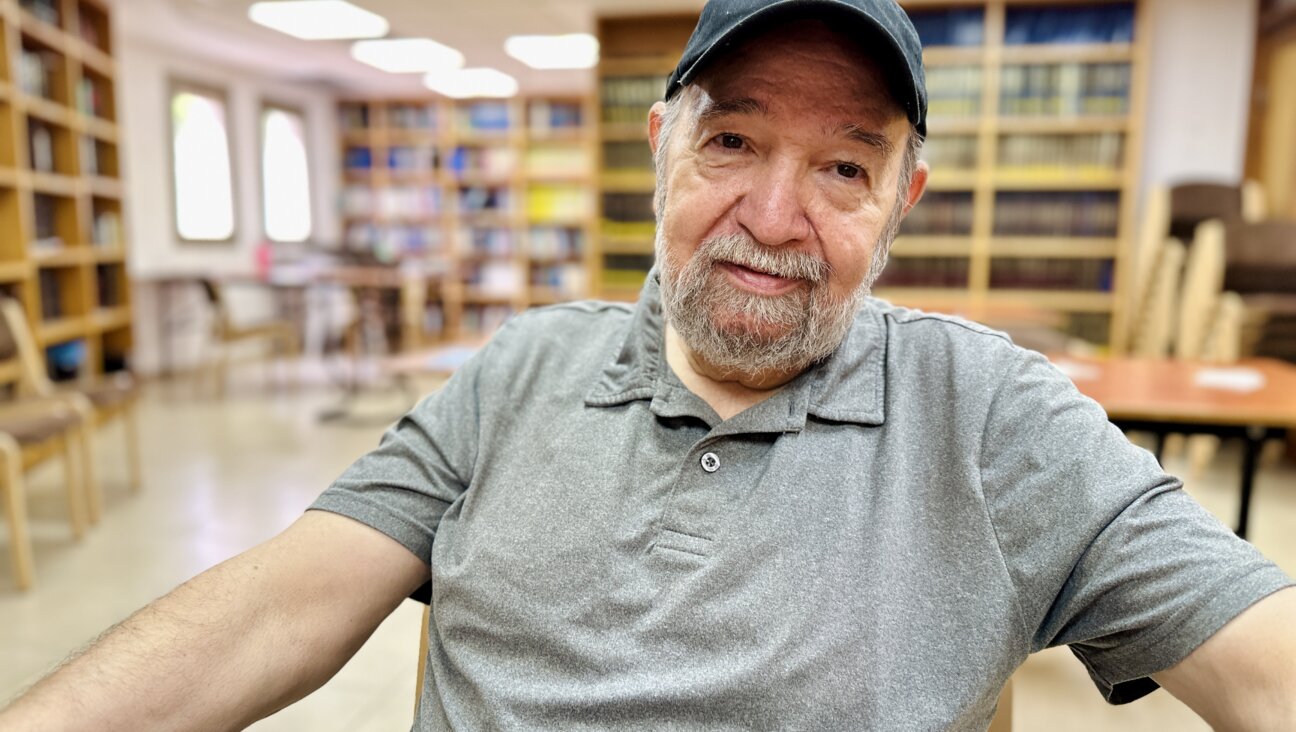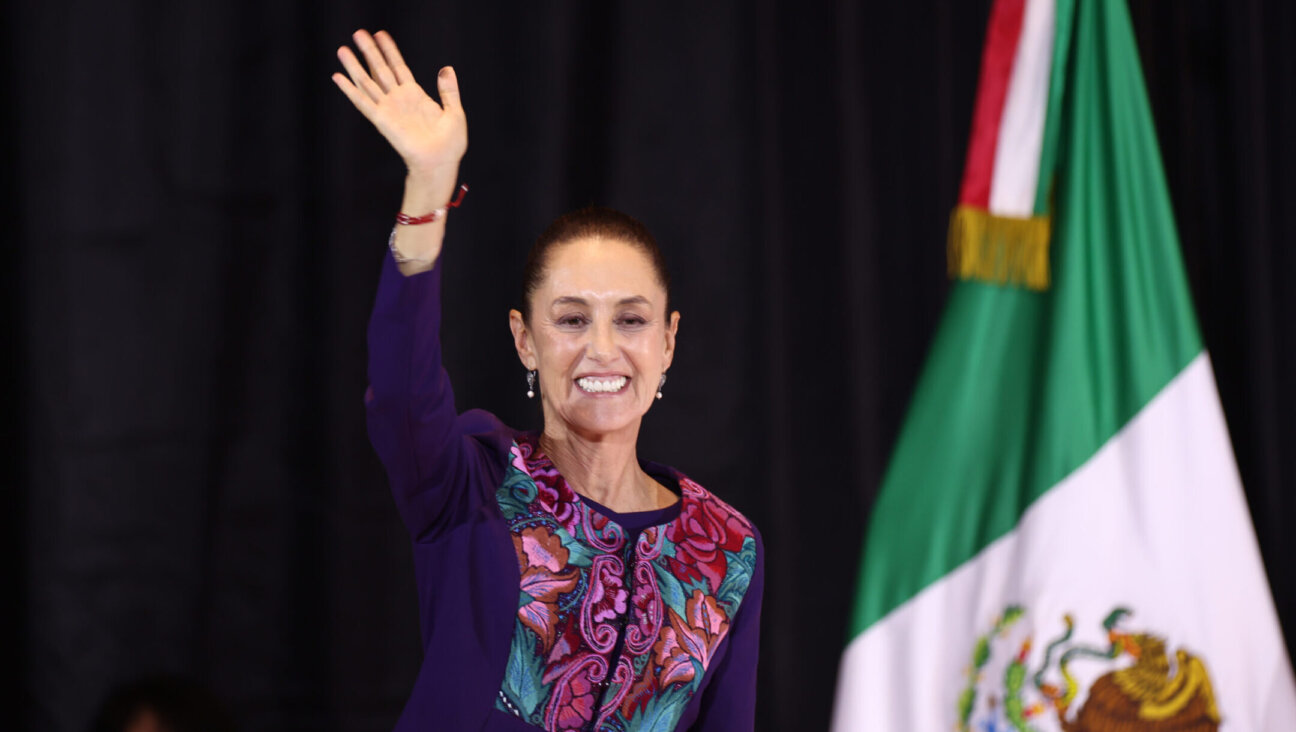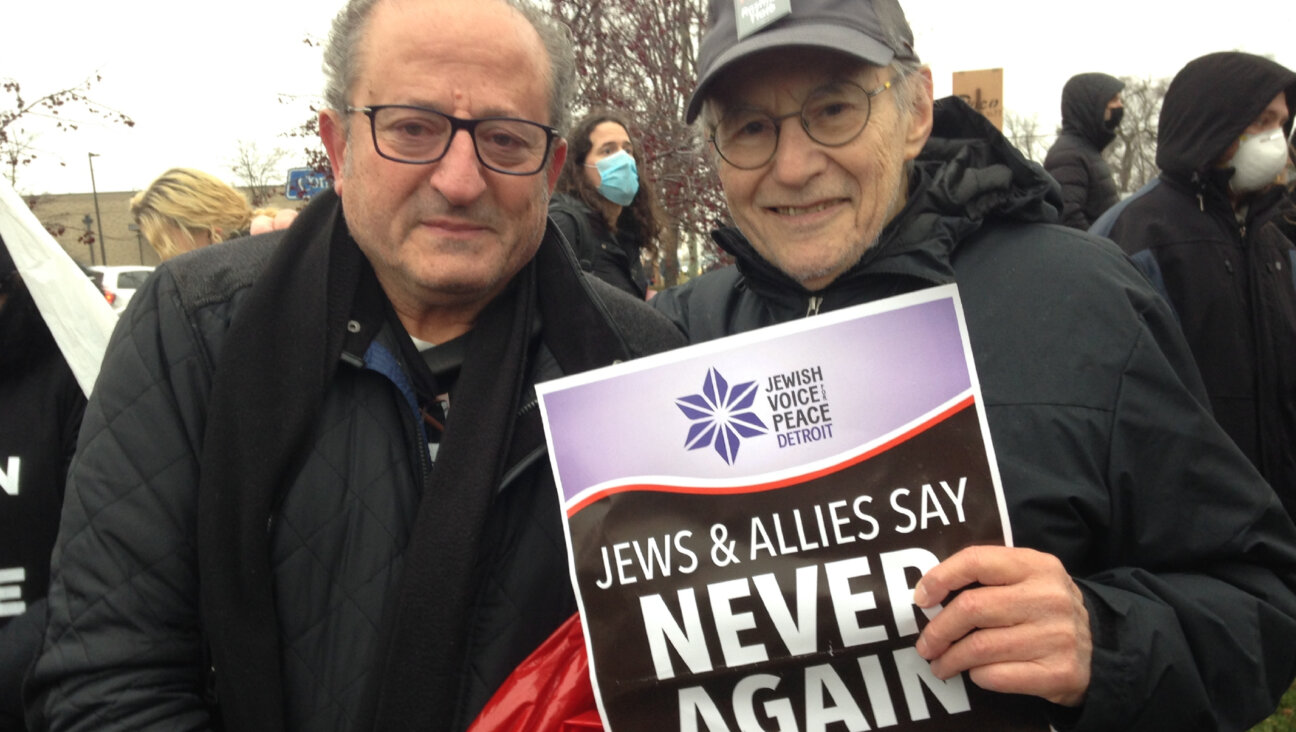‘I want to find Blaze as much as you do’: Call from Blaze Bernstein’s alleged murderer to distraught parents played at trial
Samuel Woodward told them he had searched for Blaze after he disappeared into a local park
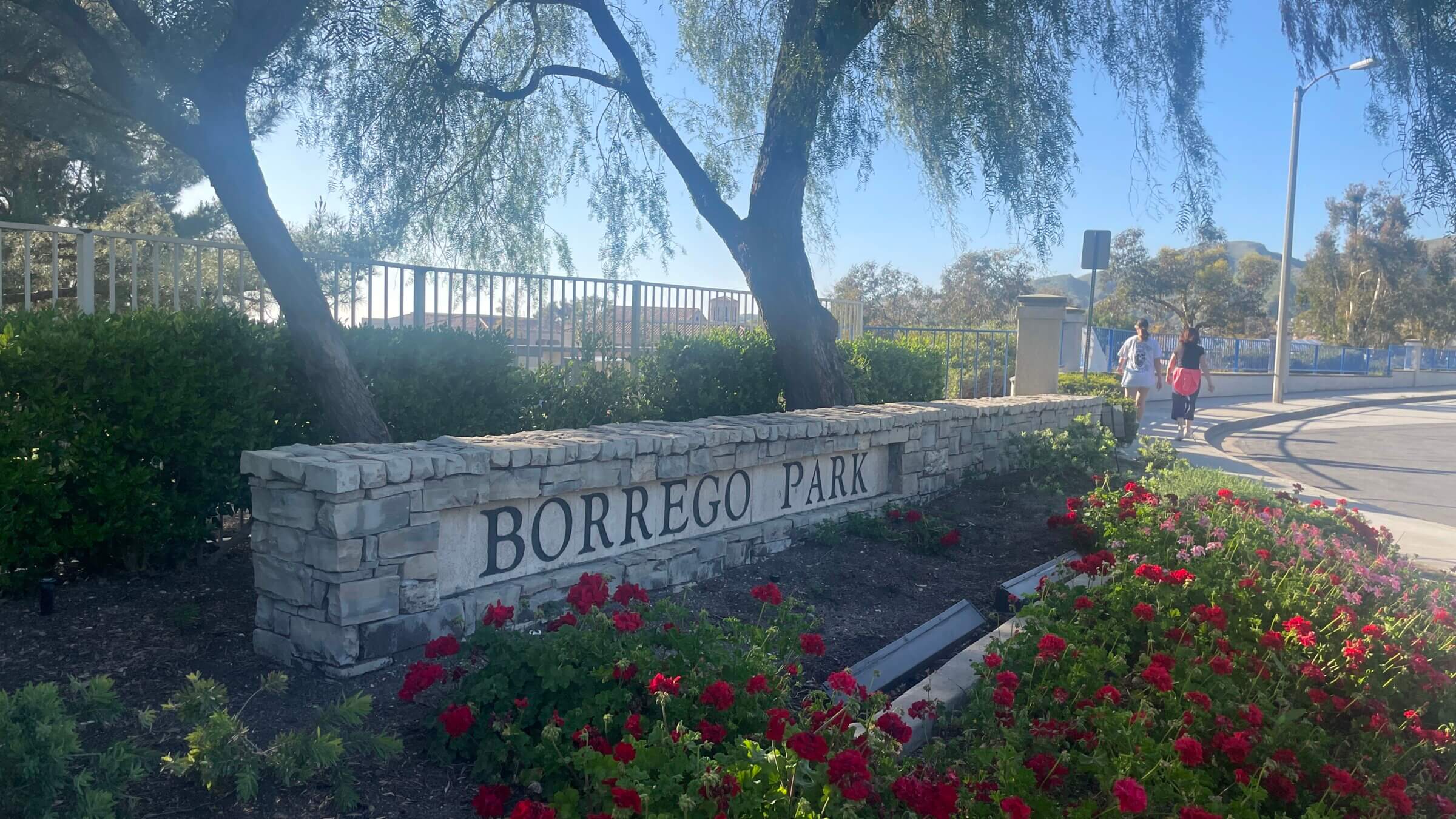
The entrance to Borrego Park in Lake Forest, California. Blaze Bernstein’s body was discovered buried at the park on Jan. 10, 2018. Photo by Louis Keene
In a chilling phone call the night after Blaze Bernstein’s death, his alleged murderer told Bernstein’s distraught parents, “I want to find Blaze as much as you do.”
They weren’t convinced.
Prosecutors played a 10-minute recording of the Jan. 3, 2018, phone call, in the Orange County courtroom Thursday where Samuel Woodward is being tried for first-degree murder and a hate crime. As tense as an interrogation — even as each party feigned trusting the other — the recording was the dramatic peak of an emotional day that featured testimony from both Bernstein parents.
The day’s proceedings also underlined a growing focus on Bernstein’s Jewish identity, suggesting it will feature more prominently during the trial than it did in opening arguments, when lead prosecutor Jennifer Walker told the jury Woodward’s “prey was gay people.”
Bernstein met up with Woodward, a college dropout who had joined a neo-Nazi group, when Bernstein, then 19, was home from the University of Pennsylvania on winter break. The two, who had attended high school together, matched on Tinder six months before their fatal encounter and again Jan. 2, the day Woodward, then 20, allegedly stabbed Bernstein to death. Woodward’s attorney says his client killed Bernstein but without premeditation and not because the victim was gay.
During the call, Woodward presented his alibi: Bernstein had requested they drive to a nearby park to meet a third friend from their alma mater, whose name Bernstein never shared. Bernstein got out of the car at the park to meet the friend and never came back. Woodward, thinking Bernstein was pranking him, eventually left. Later, out of concern something may have happened to Bernstein, he had returned to the park to look for him, unsuccessfully.
After the call, but in the seconds before the recording ended, Blaze’s father, Gideon Bernstein said, flatly, “I don’t believe it.”
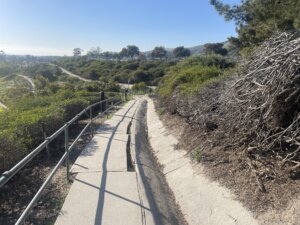
The phone call
On the trial’s third day, Bernstein’s mother, Jeanne Pepper, and Gideon Bernstein took turns recounting the family’s panicked search for information about their son’s whereabouts.
Blaze had saved his password on Pepper’s phone, which Gideon now used to get into Blaze’s computer. His phone had synced with the computer, but the only text messages they found from the night before were with his friend Lily, and didn’t seem to reveal anything. Distraught, the family called the police, but the deputy dispatched to the house “was just really dismissive,” Pepper said, and talked them out of filing a police report.
The parents continued their search on Blaze’s computer, this time logging into his account on Tinder, a dating app. There were a few matches — including Woodward. Pepper said they didn’t recognize the name, but from reading their conversation — which were reviewed in court Wednesday — they felt they were onto something. They then checked their son’s Snapchat account, where they found he had exchanged more messages with Woodward.
“There was some communication about ‘where did you go’ or ‘I can’t find you’” from Woodward to their son, Pepper recalled. Seeing this, they messaged Woodward from Blaze’s Snapchat account and asked him to call them immediately. When Woodward did a few minutes later, Blaze’s father, Gideon Bernstein, placed the call on speakerphone as Blaze’s sister Beaue recorded, the three standing in Blaze’s bedroom.
The recording played at the trial Thursday began with Woodward mid-sentence, describing driving to meet Bernstein’s friend at Borrego Park, which is about a mile from the Bernstein home in Foothill Ranch, not far from Irvine. Bernstein got out of the car in the parking lot, he said, which the park shares with the Foothill Ranch Public Library.
“I just waited and waited,” Woodward told them. “I got really cold. Because I got fucking pissed off — you may have seen the Snapchat — I got mad at him halfway through the night because I thought he just bailed on me. And I just left after a while because I was so mad at him. Then I guess I realized, you know, did something happen to him? So I went back, I searched all over for him, I looked for where he was at the library, I couldn’t find him anywhere. I guess I just figured he might just call me in the morning or was just pranking me, but this is — I’m scared now.”
It was the first time the jury had heard Woodward’s voice, which sounded tired even as Woodward pretended to be helpful. It will likely not be the last time: Woodward’s attorney said his client will testify.
Next, the parents asked if there was anyone else Woodward knew their son was involved with, romantically or otherwise.
“Romantically?” Woodward responded. “Oh — yeah, I didn’t even know until we first started hanging out that Blaze was gay. He told me that he thought I was cute or whatever, but I just said I wanted to hang out with him because it’s nice to see a familiar face. But no, I don’t think he was part of a couple or anything like that.”
Gideon Bernstein continued asking questions: So did you look for him again? Woodward became more specific, saying he had ventured down the trail leading from the edge of the park that Blaze said he was going down.
“I shouted out, ‘Blaze! Blaze!’ as loud as I could several times, and no one replied,” Woodward said.
Earlier in the call, Woodward said Blaze had never divulged who he planned to meet. But later, Woodward said it was supposedly a friend from their high school, Orange County School of the Arts.
When the Bernstein parents asked what time he last saw their son, Woodward guessed “10:24-ish, five-ish.” That surprised Gideon. Woodward then checked his phone, which revealed the young men had spoken at 11. He adjusted his estimate to around 11:50 p.m., blaming it on his broken watch. (Walker showed in opening arguments that the watch, which was found with blood matching Bernstein’s DNA on it, was working when it was taken as evidence.)
Gideon Bernstein played it cool during the call, telling Woodward he was a “nice young man” as he asked Woodward if they could keep calling on him for help.
“Yeah, I — fuck — honestly, you know, I’m sorry, I thought Blaze was pulling a prank on me or some shit like that,” Woodward replied, sounding distressed.
He later added: “I want to find Blaze as much as you do.”

Both parents testified that they sensed something was off during the call. Pepper said that because she knew the park well — her son played there often as a child — she doubted that Woodward would have been able to see from the parking lot all the way to the trail entrance, a distance of about 500 feet.
“That’s not possible, to see that,” she said. “So I knew that he was lying.”
They called the police again, and this time the missing person’s report got filed.
The next morning, Gideon Bernstein received a text message from Woodward: Any update on Blaze? No, Bernstein responded, we’re still looking for him.
It was the last the family heard from Woodward. On Jan. 10 — six days after that text — investigators discovered Bernstein’s body buried under a tree in the northwest corner of Borrego Park, near where the trail begins.
A Jewish turn
Six years and three months after Bernstein’s death — the trial faced several delays due to the pandemic and as Woodward cycled through attorneys — his parents’ testimony clearly drained some in the courtroom. Gideon Bernstein paused multiple times to collect himself as he retraced his steps the day before and after his son disappeared.
“I walked every square meter of that park,” he said, his voice faltering as he described the morning after the Woodward call. “All over that thing. I was yelling Blaze’s name.”
One person in attendance Thursday — there were around 30 people in total, roughly half the previous day’s turnout — excused themselves during Bernstein’s testimony, and was overheard saying they could not handle it.
Both Pepper — a non-practicing attorney who passed the state bar in 1995 — and her husband clashed with defense attorney Ken Morrison under cross-examination.
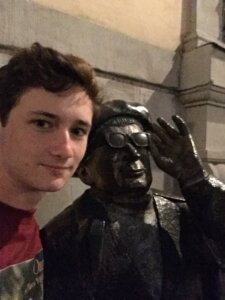
Pepper called one of Morrison’s questions “ridiculous,” and an exchange near the end of Gideon Bernstein’s testimony — related to Blaze’s Jewish identity — drew glares and sarcasm from the victim’s father.
The family’s religious background had largely taken a backseat at the trial’s onset, with Blaze’s sexual orientation — and Woodward’s — at the fore of questions about the crime’s motivation.
But Walker, the prosecutor, bookended the Bernstein parents’ testimony with questions about their son’s Jewish observance. They described a family that regularly attended Shabbat services at University Synagogue, a Reconstructionist congregation in Irvine, and celebrated Jewish holidays at home. Blaze Bernstein had been a madrich, or counselor, for first graders in the synagogue’s Hebrew school, and had attended Hebrew school himself.
When Morrison cross-examined Gideon Bernstein, he asked whether Blaze wore a yarmulke in those settings. Bernstein said yes. And when he wasn’t in a specifically Jewish setting, Morrison then asked, would he wear a yarmulke?
The father’s answer cut through the line of questioning: “His last name was Bernstein.”
Morrison objected that the answer was non-responsive, and Judge Kim Menninger agreed.
Morrison asked again.
This time, Bernstein said, “He didn’t wear a yarmulke, but I think all his friends knew he was Jewish.” Again, Morrison objected, and again the judge agreed. Everything after “yarmulke” was deleted from the record.
The trial resumes Monday in the Orange County Superior Courthouse.








